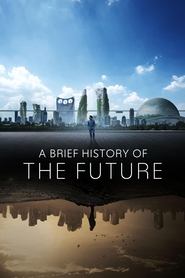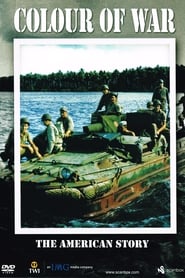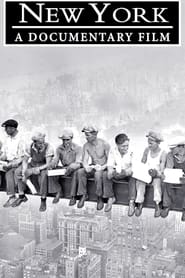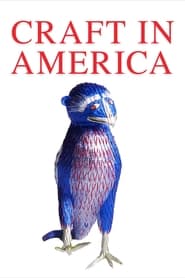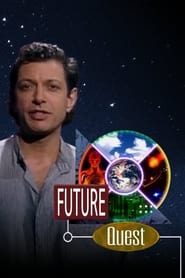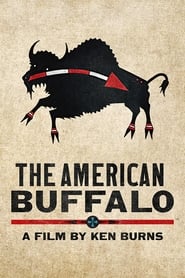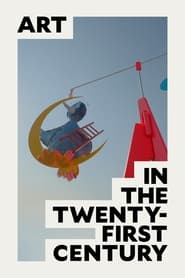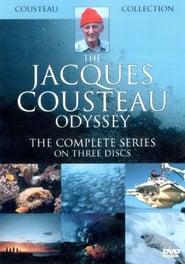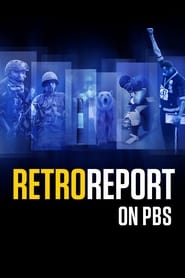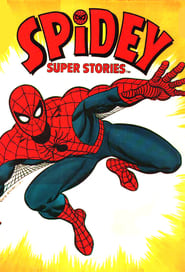Pbs TV Series - Page 11
-
A Brief History of the Future
2024
star 3A Brief History of the Future is a unique six-part documentary series about our futures and how we can reimagine them. Hosted by renowned futurist Ari Wallach, the show invites viewers on a journey around the world that is filled with discovery, hope, and possibility about where we find ourselves today and what could come next. -
War
1983
War
1983
This series of seven one-hour films examines the nature, evolution and consequences of modern warfare. Filmed in ten countries, on two oceans, and with the co-operation of the armed forces of six nations, War features interviews with top-level NATO and Soviet military leaders and strategists, eminent historians and other professional observers of combat. Drawing as well on film and picture archives worldwide, with footage of important battlefields on three continents, this documentary series argues that war, an institution invented to settle disputes between nations, no longer serves its purpose. It concludes that nations must find other ways to resolve their differences. The on-camera host for the War series is Gwynne Dyer, Canadian international affairs analyst and military historian. -
Reconstruction: America After the Civil War
2019
star 6.7Explore the transformative years following the American Civil War, when the nation struggled to rebuild itself in the face of profound loss, massive destruction, and revolutionary social change. The twelve years that composed the post-war Reconstruction era (1865-77) witnessed a seismic shift in the meaning and makeup of our democracy. -
Angelina Ballerina
2001
star 7.3Set in Chipping Cheddar, a place similiar to 1920s London, Angelina Ballerina features Angelina Mouseling, a bold little mouse with big dreams - she hopes to become the greatest ballerina in Mouseland. -
In Other Words
0000
In Other Words
0000
-
The Perilous Fight: America's World War II in Color
2003
star 10This four-hour series narrated by Martin Sheen captures America's wartime experience through original color film footage and compelling passages from diaries and letters. Rare color footage-much of it never before publicly screened-presents a vivid and intimate portrait of life on the battlefield and on the U.S. home front. -
America's Ballroom Challenge
2006
America's Ballroom Challenge is a competitive ballroom dance television series airing on Public Broadcasting Service in the United States since 2006. It is part of the annual Ohio Star Ball, a festival of DanceSport in Columbus, Ohio. Each season typically consists of competitions in five categories, with the first four categories devoted to each of the major styles of competitive ballroom dance: ⁕American Smooth: Waltz, Tango, Foxtrot, Viennese Waltz ⁕American Rhythm: Cha Cha, Rumba, East Coast Swing, Bolero, Mambo ⁕International Standard: Waltz, Tango, Viennese Waltz, Foxtrot, Quickstep ⁕International Latin: Cha Cha, Samba, Rumba, Paso Doble, Jive The last category is a "Grand Finale" with the four champion couples competing for the title of "America's Best" dancers. -
New York: A Documentary Film
1999
star 7.5This eight-part, 16½-hour television event explores New York City's rich history as the premier laboratory of modern life. A sweeping narrative covering nearly 400 years and 400 square miles, it reveals a complex and dynamic city that has played an unparalleled role in shaping the nation and reflecting its ideals. -
Craft in America
2007
Craft in America
2007
Explore the vitality, history and significance of the craft movement in the United States and its impact on our nation's rich cultural heritage. Capturing the beauty, creativity and originality of craftsmanship, the show highlights artists and explores the inter-relationship of what they do, how they do it and why they have chosen a life of creating art. -
Future Quest
1994
Future Quest
1994
Experts compare the futuristic visions of pop-culturists with the breakthrough advances in science and technology. -
I'll Have What Phil's Having
2015
star 6Embark on an international culinary expedition with Phil Rosenthal, creator of the TV hit Everybody Loves Raymond, and one of Hollywood’s funniest producers. Join Phil as he explores six culinary capitals of the world in search for the best of a city’s specialty, or one of its most unusual dishes. -
Steven Raichlen's Project Fire
0000
Project Fire is a new and insightful exploration of how we grill today and how we will grill and smoke tomorrow. Innovators of live fire cooking join Steven to share revolutionary new techniques that will elevate the backyard barbecue experience. -
The American Buffalo
2023
star 6.7The dramatic story of America's national mammal, which sustained the lives of Native people for untold generations, being driven to the brink of extinction, before an unlikely collection of people rescues it from disappearing forever. Ken Burns recounts the tragic collision of two opposing views of the natural world—and the unforgettable characters who pointed the nation in a different direction. -
Original Fare
2013
Original Fare
2013
Join Kelly Cox as she hunts, forages, and farms her way across the globe to search for the best ingredients our planet has to offer. -
art21
2001
star 2Contemporary artists describe their work and discuss why and how they do it. The programs are grouped according to themes of place, spirituality, identity and consumption. A PBS series, educational resource, archive, and history of contemporary art, Art21: Art in the Twenty-First Century premiered in 2001 and is now broadcast in over 50 countries worldwide. Premiering a new season every two years, Art21 is the only series on United States television to focus exclusively on contemporary visual art and artists. -
Michael Feinstein's American Songbook
0000
Pianist-singer Michael Feinstein leads a tour through American musical history, from the jazz days of the 1920s through the music of World War II and on into the 1950s and '60s, with the advent of rock 'n' roll. In his quest to celebrate some of America's finest composers, he touches on the works of George and Ira Gershwin, Richard Rodgers, Harold Arlen and Johnny Mercer. The passionate preservationist shares personal stories of his efforts to save America's musical heritage, as well as anecdotes about composers and lyricists he's worked with over the years. -
On Common Ground
0000
On Common Ground
0000
-
The Jacques Cousteau Odyssey
1979
star 8.4The Jacques Cousteau Odyssey includes all 12 episodes of the 1978 television series featuring the research adventures of Cousteau, a celebrated documentarian and public conscience of mankind's stewardship of our oceans. Alongside his son Philippe Cousteau, Jacques's adventures begin with an ambitious expedition (on Cousteau's famous Calypso ship and a seaplane called the Catalina) following the course of the Nile River from Central Africa to the Mediterranean. -
Retro Report on PBS
2019
star 8Making sense of the present by revealing the past. Journalists Celeste Headlee and Masud Olufani connect the present to the past through four distinct and varied stories, and New Yorker humorist Andy Borowitz adds his signature wit. -
Spidey Super Stories
1974
Spidey Super Stories
1974
A live-action, recurring skit on the PBS children's television series The Electric Company. Episodes featured the Marvel Comics character Spider-Man, provided to the Children's Television Workshop free of charge, and was played by puppeteer and dancer Danny Seagren. Stories involved the masked superhero foiling mischievous characters who were involved in petty criminal activities. The cast of The Electric Company played the roles of the various characters in each story, with another serving as narrator. In many of these sketches, viewers were addressed as "true believers." Unlike other live-action and cartoon productions of Spider-Man, this version of the web-slinging hero did not speak out loud, instead communicating only with word balloons, in order to encourage young viewers to practice their reading skills because he was drawn without a mouth. He also never appeared out of his costume as Peter Parker and, given the series' budget limitations, used his web-shooters sparingly.
